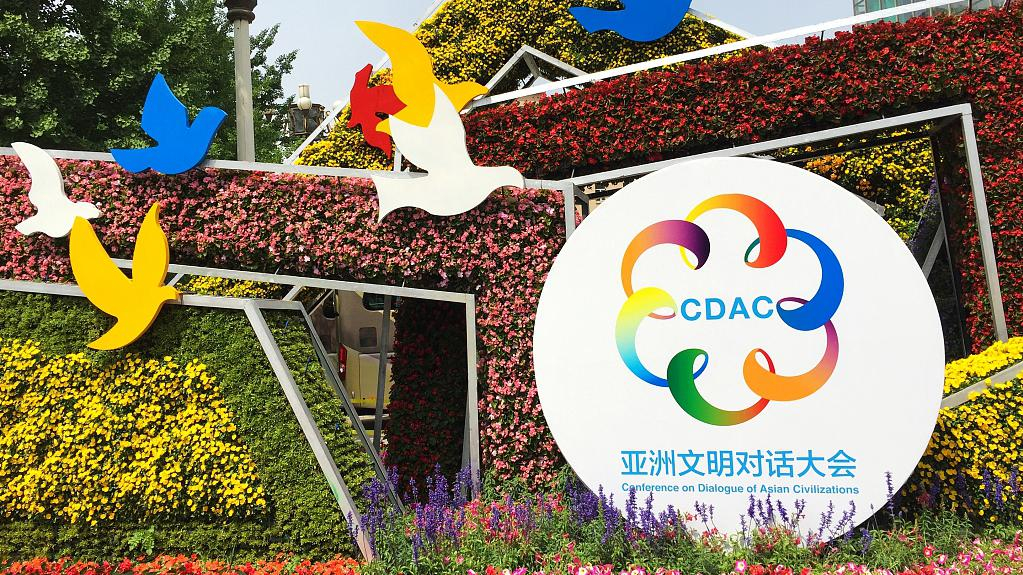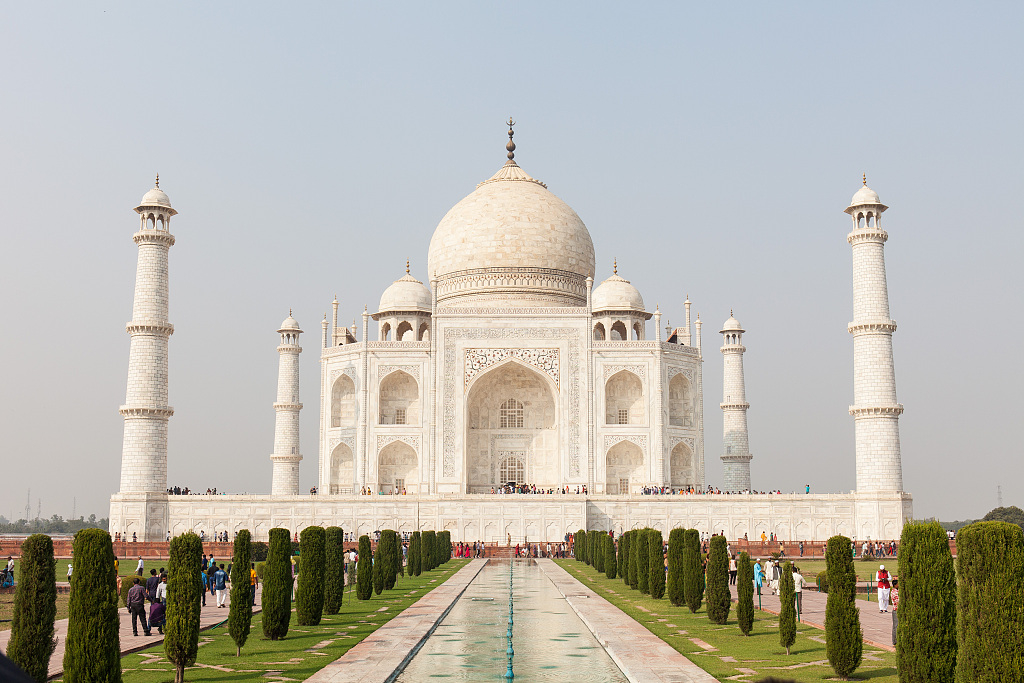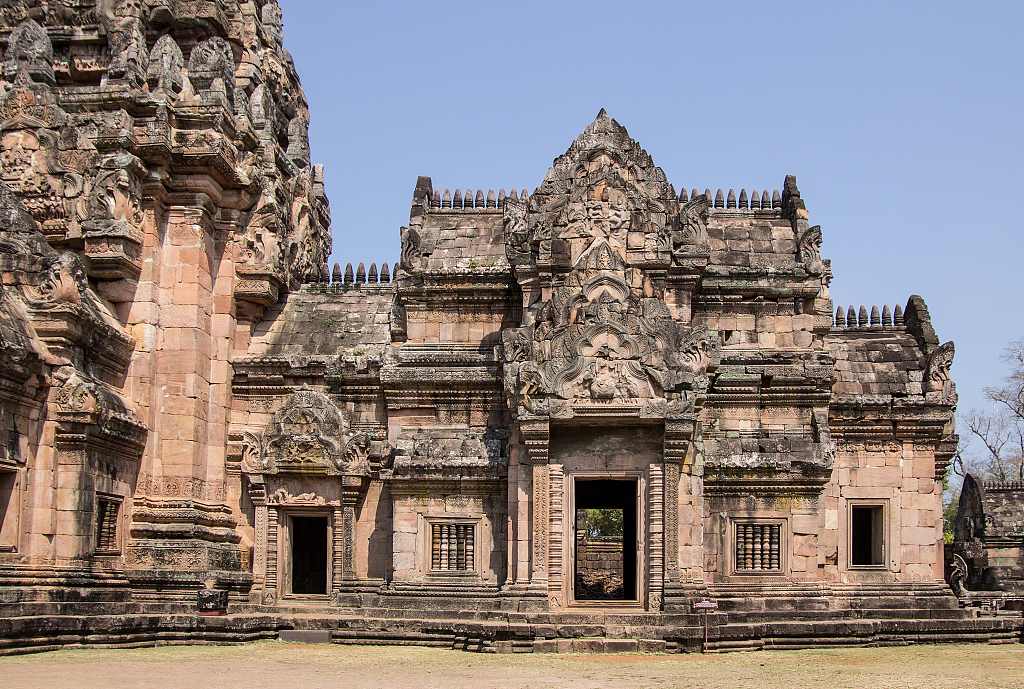
Opinion
14:28, 15-May-2019
Let prosperity of civilizations dominate
Wang Shanshan

Editor's note: Wang Shanshan is a current affairs commentator and former Washington bureau chief of China Radio International (CRI), with 10 years of research on China-U.S. relations. The article reflects the author's opinion, and not necessarily the views of CGTN.
President Xi said to face common challenges and march toward a bright future, we need not only economic and technological power, but also the power of cultural civilization.
It is foolish to believe that one's race and civilization are superior to others, and it is disastrous to willfully reshape or even replace other civilizations, Xi said.
Why is it important to discuss the future of civilization at this moment? It reminds people of the "Quest of the Times" put forward by the Chinese President Xi Jinping at last year's Boao Asian Forum, where he said, "facing an ever-more complicated world, where is the human society heading? Where is the future of Asia?"

Taj Mahal, Agra, Uttar Pradesh, India. /VCG photo
Taj Mahal, Agra, Uttar Pradesh, India. /VCG photo
The Conference on Dialogue of Asian Civilizations which kicks off Wednesday in Beijing tries to give an answer. The pertinence and relevance of the conference are especially proven by recent arguments of a "clash of civilizations" worldwide. It seems that the term "civilization" is being ambushed by the term "clash."
The most recent case was provoked by the director of policy planning for the U.S. State Department, Kiron Skinner, who stoked controversy by claiming that competition between China and the United States was the result of a clash of civilizations, saying it's "a fight with a really different civilization and a different ideology."
The "clash of civilizations" hypothesis emerges every now and then. It originated from the American political scientist Samuel Huntington's main thesis which developed into a book. Huntington divides the world into eight "major" civilizations and argues that people's cultural and religious identities will be the primary source of conflict in the post-Cold War world.
The argument has been criticized for touting "cultural hegemony" ever since its birth and the reemergence of the thesis rings a bell. If we look at the track record of the argument, it's interesting to notice that the waves of the arguments all come from the United States. Every time the country is mired in a deep conundrum, be it the anti-terrorist war since 2001, or the wrestling with China in trade tension, the argument of a clash of civilizations would emerge and get louder.
The practices of the United States reveal the fact that civilization can be weaponized, aiming at dividing the world, aligning allies, demeaning rivals and laying the theoretical basis for further attacking moves. Kiron Skinner is not hiding the intention that the U.S. State Department is drafting strategic plans to deal with China based on the hypothesis.
It's dangerous, not only for Sino-U.S. relations but for the world at large. In a world filled with polarization, instability, and uncertainty, if the hypothesis of a clash of civilizations gets the upper hand, it might become a self-fulfilling prophecy to drag the world into endless conflicts and chaos.
Visiting Greek President Prokopios Pavlopoulos, who is attending the Conference on Dialogue of Asian Civilizations said the "clash of civilizations" argument drummed up by certain people in the international arena was a huge mistake. It's a general consensus. The Chinese President said in his keynote speech at the Conference that there is no superior or inferior status in terms of civilization, they shine in different forms. The thinking of having a superior species or civilization and wanting to take over other civilization is stupid and catastrophic.
Civilization is never the cause of clashes, but the scapegoat, or victim. Huntington argues that future wars would be fought not between countries, but between cultures. However, in reality, clashes within a culture are far more frequent than those between different cultures, and the endless conflicts, even wars between the Sunnites and the Shiites are an example.

Angkor Wat, Angkor, Siem Reap, Cambodia. /VCG Photo
Angkor Wat, Angkor, Siem Reap, Cambodia. /VCG Photo
In the history of civilization, a vibrant civilization is never isolated, but out-reaching; it's never stagnant, but fluid; it's never resistant, but inclusive. No civilization develops on its own, and each civilization is an outcome of absorbing virtues of other civilizations. The Chinese civilization has absorbed and learned from the ancient Greek civilization, the ancient Roman civilization, the Mediterranean civilization, as well as Buddhism, Islam, and Christianity through the Silk Road. That's how the Chinese civilization has maintained strength and vitality for 5000 years and still growing.
Connection, rather than the division between civilizations is the key to drive the world civilization to prosperity. Differences can never be eliminated, and that's what makes the world colorful and versatile. The world will be boring if the civilization of mankind turns into a single pattern. Differences are not as important as similarities. It's important to discard pride and prejudice and uphold mutual respect and equality.
Answering the "Quest of the Times," China presents its plan, which is to uphold mutual respect and equality, boost self-confidence and appreciate each other, stick to the principles of openness and mutual learning, and keep civilizations grow with the times. Seeking goodwill with neighbors and harmony with all nations is the Chinese way of engaging with the world.
Asian people look forward to an open and interconnected Asia, a peaceful and tranquil Asia. It's the general hope of the Asian people not to live in fear. They should be rewarded with stability and prosperity.
The weaponization of the "clash of civilizations" is doomed to end up in a trash can. Let the prosperity of civilizations dominate, for a world blessed with diversity and integrity, harmony and unity.
(If you want to contribute and have specific expertise, please contact us at opinions@cgtn.com.)

SITEMAP
Copyright © 2018 CGTN. Beijing ICP prepared NO.16065310-3
Copyright © 2018 CGTN. Beijing ICP prepared NO.16065310-3